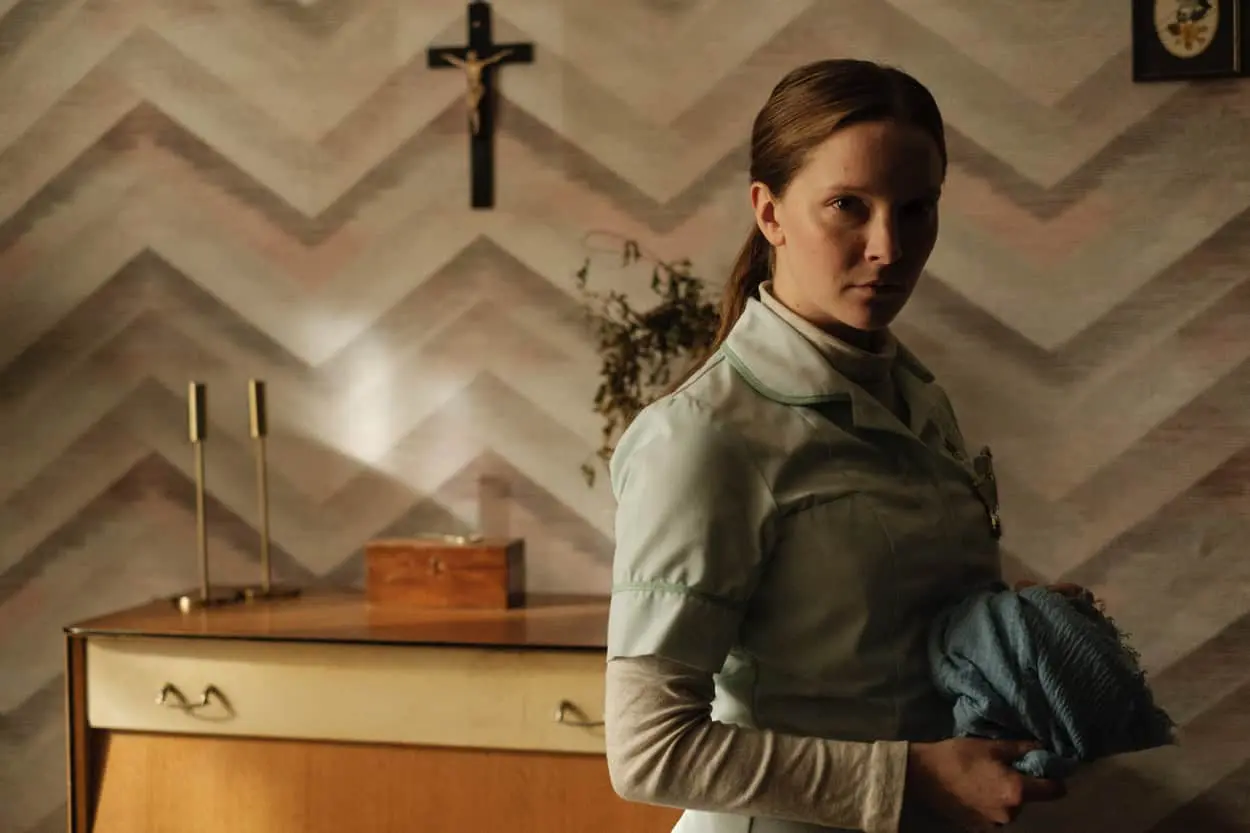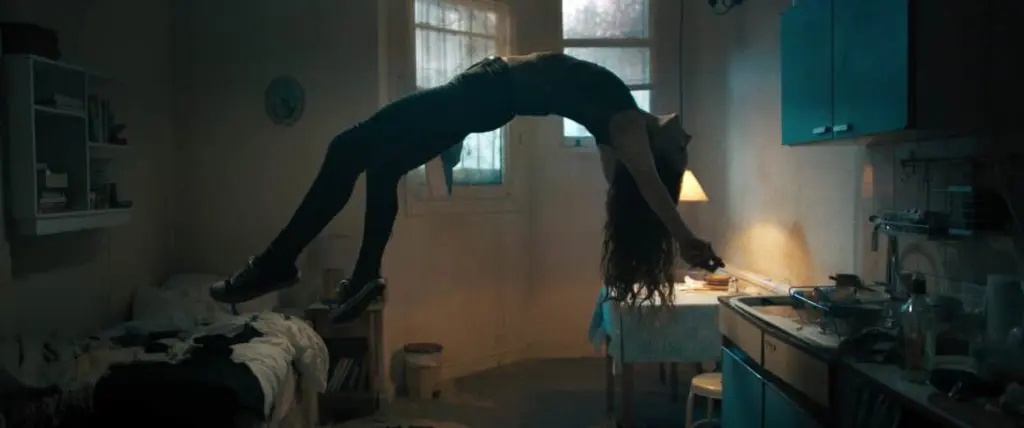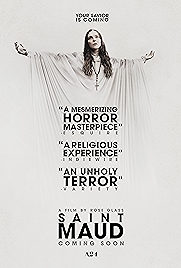Where are the jokes about Muslims then? the gammon-faced men shout at “liberal left” comedians making jokes about Christianity. They might have a point. But when it comes to films there is no shortage of ones about radicalised Muslims, from the serious (A Prophet) to the comedic (Four Lions). Which makes Saint Maud rather different, a drama about a young woman whose religious experience is transcendent, though not always in the generally accepted sense.
It joins the likes of Requiem (the 2006 film starring Sandra Hüller) and Stations of the Cross (the 2014 film starring Lea van Acken) on a shortlist of powerful recent films about Christianity’s downside. All three are about vulnerable young women in the grip of religious fervour, with belief acting as an analogue for the social pressure on women to conform, if that’s how you want to see it.
Saint Maud can be watched as a simple spooky story, however. About a young nurse taking care of a former dancer, now chemo-bald with stage four spinal lymphoma – “a bit of a cunt”, the woman’s previous palliative nurse, clearly busting to get away, tells Maud as she gets out of Dodge as fast as she can, leaving Maud to cook and wash and tend to her patient’s every need.
We know Maud is religious because we have been introduced to her in interior monologues (she’d probably say dialogues) with God. Though, as she chattily tells Him, she has little time for “creative types as they tend to be rather self-involved.” Says the entirely self-involved Maud.
In fact this is a story of self-involvement so intense that it’s pathological, destructive and dangerous. However, things are breezy at first, the intense Maud and the bohemian Amanda managing to strike up some kind of friendship. Amanda, scoffing initially at Maud’s devoutness, softens after a while and even seems to have moments where she too experiences what Maud increasingly seems to be experiencing – religious ecstasy.
Two great performances make all this – the way these very different women bend towards each other – entirely believable. I’ve yet to see Jennifer Ehle – as smoky, drinky libertine Amanda – come up short in a role (from bonnet-y Pride and Prejudice to power-dressy Zero Dark Thirty is quite a range). Morfydd Clark ducks the easy win of making Maud a nutter, though is clearly disturbed at the very least, and also shows us the positive side of belief – the timid Maud, when she feels the spirit move her, can be remarkably forceful and forthright.
And in the central section when a lot more is revealed about Maud’s past, Clark switches in and out of personality – up, down, hot, cold, rational, bonkers, lost, calculating – at an impressive speed.
I’m trying to avoid giving the plot away, because this is a narrative driven as much by its story as the characters, though mood forms a third leg – that big gloomy house of Amanda’s, shot as a cavernous tomb-in-waiting by DP Ben Fordesman, who is also adept at using his nervy, swooping camera to suggest Maud’s mental confusion, or is it religious fervour, or are they the same thing?
Adam Janota Bzowski’s soundtrack is also intensely subjective and pumps and heaves and blips away electronically, more suggestion of mental states out of the norm.
At one point Saint Maud does start to look like it’s opening itself to the criticism of the gammony blokes – we’ve seen this sort of thing before and it doesn’t seem too challenging to suggest that Christians are delusional – but then writer/director Rose Glass switches gear for a finale that pushes Maud to the limit of ecstatic self-involvement and beyond. Things get bloody, there’s a hint of The Exorcist and then things gets really, shockingly, grim. And there Glass leaves us – high and horrified, expressionistically transcendent, both inside Maud’s head and also observing her from outside. What a finish.
Saint Maud – Watch it/buy it at Amazon
I am an Amazon affiliate
© Steve Morrissey 2021


